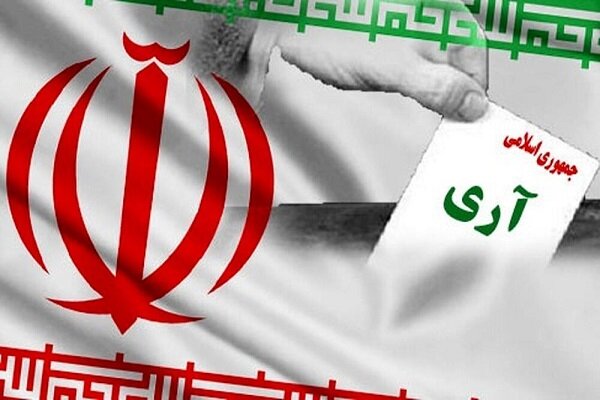
The Day of the Islamic Republic is celebrated on the 12th of Farvardin in Iran every year.
The national holiday which falls on March 31 commemorates the establishment of the Islamic Republic of Iran in 1979.
The Day highlights the country’s political and cultural identity and celebrates its achievements and aspirations as a nation.
On the 12th of Farvardin 1358 (April 1, 1979), the maximum participation of the people proved the will of the Islamic Iranian people in pride, freedom, and independence.
Islamic Republic Day is termed as a milestone that put an end to centuries of monarchy in the country.
Decisive vote for the Islamic Republic
On the Day, Iranians voted yes to the establishment of an Islamic Republic in the country, and their commitment and vigilance based Iran’s political system on Islam.
In a landmark two-day referendum held on March 30-31, 1979, over %98.2 of eligible Iranians voted “yes” to the establishment of an Islamic Republic in the country.
The vote, which was held less than two months after the victory of the Islamic Revolution, is regarded as a turning point in the modern history of Iran.
The national occasion was the realization of the slogan of ‘independence, freedom, and the Islamic Republic’ and the start of the holy path of religious democracy in a world divided between the ideologies of the communist East and the capitalist West.
The auspicious day became a turning point in the history of the great Iranian nation’s Revolution and a prelude to the establishment and consolidation of the Islamic Republic of Iran’s sacred establishment, which is the fruit of years of bravery and sacrifices by the courageous people of Iran in defending their colossal achievements.
On the Day, religious democracy, in the words of the Leader of the Islamic Republic Ayatollah Seyed Ali Khamenei, was a divine gift that was awarded to the Iranian nation by the late founder of the Islamic Revolution Imam Khomeini (RA).
Imam Khomeini described April 1 as ‘the first day of Allah’s rule’ and believed that with the approval of the Constitution by the nation’s trustees, the next step of the Iranian nation would be taken to implement the Law of Islam in all segments of the country.
On this day the huge majority of the people of Iran voted for Iran to be an Islamic republic. Iran was a monarchy for 2500 years until this auspicious day when millions of Iranians voted for an Islamic republic. This day is called the Islamic Republic Day.
On this day 98.2% of the Iranian people voted for a change in the political system of their country. After enduring years of secular political systems and various monarchies, Iranians voted for a political system that was consistent with Islamic beliefs. This new political system did not push away religion but rather embraced it.
The Islamic Republic uses Islamic laws and beliefs to shape its laws, morals, and way of life. The literal meaning of a republic is a state in which supreme power is held by the people and their elected representatives, and which has an elected or nominated president.
Iran is a republic in that it is the people, who voted for this political system, and who vote for the president, ministers, and the council, which elects the Supreme Leader. Iran is also Islamic in the sense that it follows all Islamic decrees and rulings and is consistent with Islamic teachings.
These two words, ‘Islamic’ and ‘republic’, are two inseparable words for the Iranian political system today.
By electing an Islamic Republic, Iranians also chose to be free of any unhealthy affiliations and attachments to the West. In addition, they voted and fought for the independence of their country. As a result, Iran is now an independent country. The fall of the Pahlavi regime and the victory of the people’s voices brought about many changes in the world particularly in the Middle East. These changes were not pleasant ones for the neighboring colonizers.
Many plots to destroy the Iranian political system were planned, such as the eight-year war on Iran. Iranians defended their country successfully; however, their enemies are still plotting away.
Today these attacks on Iran consist of many sanctions and more recently opposing Iran’s efforts to gain peaceful atomic energy. The enemies of Iran do not want an independent Iran and will do anything to deny them this right.
Every year, on the 12th of Farvardin, the Iranian people renew their vows to follow the principles of Imam Khomeini and once again promise to finish off the work of their martyrs and to remember the difficulties the martyrs endured for the sake of God and their country.
Reported by Tohid Mahmoudpour